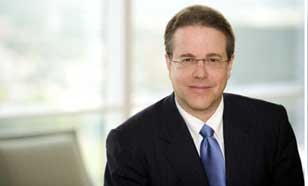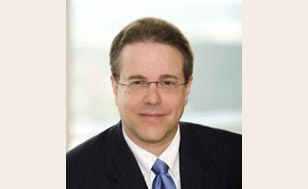Lewis H. Lazarus

February 10, 2016 | Delaware Business Court Insider
Derivative Settlement With Benefit Personal to Plaintiff RejectedIn 1850, Abraham Lincoln prepared notes for a law lecture. He emphasized the importance of compromise because after litigation, "the nominal winner is often a real loser—in fees, expenses, and waste of time."
By Lewis H. Lazarus
4 minute read

December 23, 2015 | Delaware Business Court Insider
Preservation of Option to Pursue Claim Not Threatened ActionBuyers and sellers and their counsel allocate risk in stock purchase or merger agreements.
By Lewis H. Lazarus
5 minute read

December 23, 2015 | Delaware Business Court Insider
Preservation of Option to Pursue Claim Not Threatened ActionBuyers and sellers and their counsel allocate risk in stock purchase or merger agreements.
By Lewis H. Lazarus
5 minute read

November 04, 2015 | Delaware Business Court Insider
Merger Price Is Best Evidence of Fair Value in Appraisal ActionThe practice of a hedge fund buying shares in a Delaware corporation upon the announcement of a cash-out merger to then exercise appraisal rights, sometimes referred to as “appraisal arbitrage,” has generated controversy.
By Lewis H. Lazarus
5 minute read

November 04, 2015 | Delaware Business Court Insider
Merger Price Is Best Evidence of Fair Value in Appraisal ActionThe practice of a hedge fund buying shares in a Delaware corporation upon the announcement of a cash-out merger to then exercise appraisal rights, sometimes referred to as “appraisal arbitrage,” has generated controversy.
By Lewis H. Lazarus
5 minute read

September 16, 2015 | Delaware Business Court Insider
Chancery Dismisses Complaint for Failure to Allege NoncomplianceA principal difference between alternative entities and corporations under Delaware law is the ability in the former to modify or eliminate fiduciary duties.
By Lewis H. Lazarus
6 minute read

September 16, 2015 | Delaware Business Court Insider
Chancery Dismisses Complaint for Failure to Allege NoncomplianceA principal difference between alternative entities and corporations under Delaware law is the ability in the former to modify or eliminate fiduciary duties.
By Lewis H. Lazarus
6 minute read

June 10, 2015 | Delaware Business Court Insider
'Cornerstone' Decision Reinforces Del. Corporate Law Bedrock PrinciplesDelaware law has long provided that the decisions of disinterested and independent directors who receive no special benefit from a transaction ought not be the basis of personal liability in monetary damages. To subject directors who are independent of interested parties and who themselves receive no benefit in a transaction not otherwise shared with public stockholders would discourage quality individuals from serving on boards or committees of Delaware corporations and likely also reduce appropriate risk-taking.
By Lewis H. Lazarus
6 minute read

June 10, 2015 | Delaware Business Court Insider
'Cornerstone' Decision Reinforces Del. Corporate Law Bedrock PrinciplesDelaware law has long provided that the decisions of disinterested and independent directors who receive no special benefit from a transaction ought not be the basis of personal liability in monetary damages. To subject directors who are independent of interested parties and who themselves receive no benefit in a transaction not otherwise shared with public stockholders would discourage quality individuals from serving on boards or committees of Delaware corporations and likely also reduce appropriate risk-taking.
By Lewis H. Lazarus
6 minute read

April 21, 2015 | Delaware Business Court Insider
Chancery Applies Contract Principles in Preferred-Shares DisputeIn Choupak v. Rivkin, C.A. No. 7000-VCL (Del. Ch. April 6, 2015), the Delaware Court of Chancery concluded after a trial that the defendant and counterclaim-plaintiff, Vladimir Rivkin, forged documents, lied about exercising options, verified interrogatory responses and pleadings that he knew contained falsehoods, and testified falsely in deposition and at trial.
By Lewis H. Lazarus
5 minute read
Trending Stories
- 1Second Circuit Upholds $5M Judgment Against Trump in E. Jean Carroll Case
- 2Clifford Chance Hikes Partner Pay as UK Firms Fight to Stay Competitive on Compensation
- 3Judicial Conduct Watchdog Opposes Supreme Court Justice's Bid to Withdraw Appeal of Her Removal
- 4Lessons in Mediation & Negotiation: Attorneys' Reflections on Jimmy Carter
- 5Legal Issues to Watch in the US Appeals Courts in 2025
More from ALM
- Scan In Progress: Litigators Leverage AI to Screen Prospective Jurors 1 minute read
- Legal Speak at General Counsel Conference East 2024: Match Group's Katie Dugan & Herrick's Carol Goodman 1 minute read
- Legal Speak at General Counsel Conference East 2024: Eric Wall, Executive VP, Syllo 1 minute read



